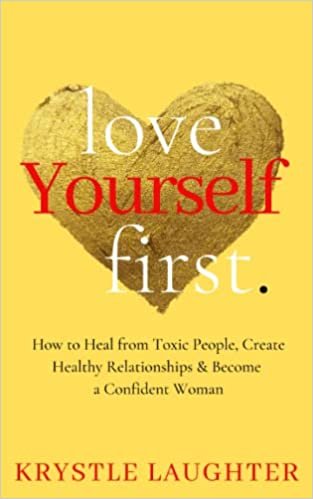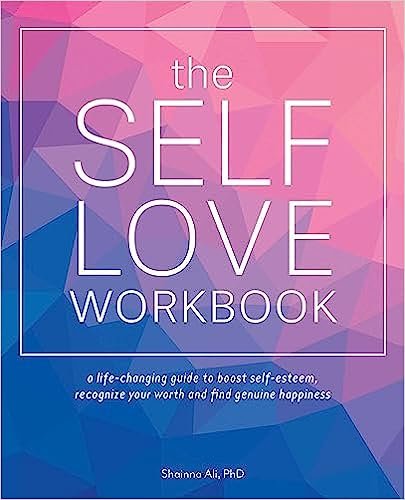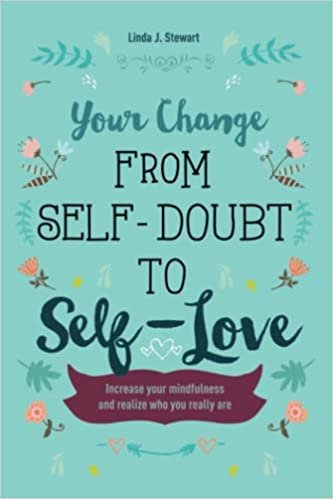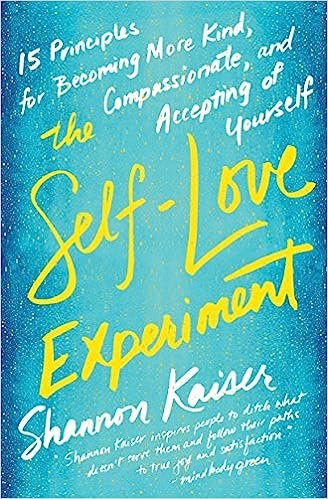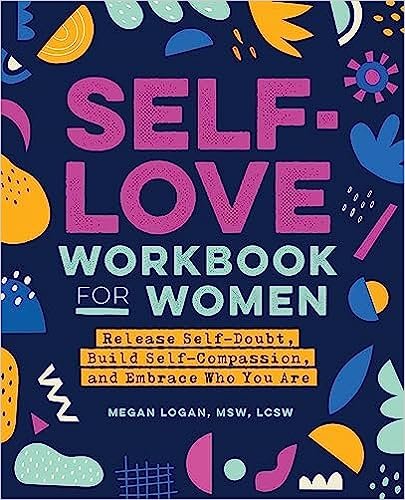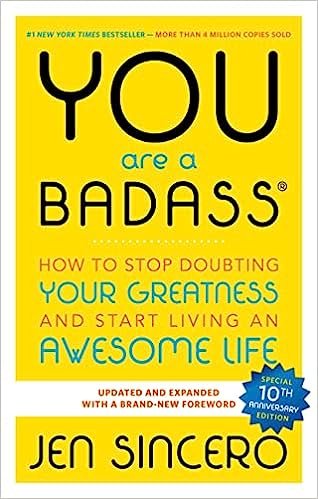12 Ways to Achieve Financial Self-Sufficiency: The Self-Love Practice No One Talks About
These practices will help you build financial self sufficiency
Financial self-sufficiency is one of the most overlooked forms of self-love. It represents so much more than having a savings account or being able to treat yourself when you want to buy something nice.
It’s about knowing you can walk away when something isn’t right. It’s about having choices. It’s about building a life that’s yours, on your terms.
When I was a young college intern still trying to figure out who I wanted to become, a mentor told me, “If you let a man pay your bills, be prepared to say, ‘Yes, sir.’” That advice stuck with me. It planted a determination to build a career that would allow me to stand firmly on my own two feet, and it cemented independence as the real luxury.
There’s a quiet panic that sets in when you realize you don’t feel financially safe on your own. Maybe it hit you all at once after a breakup or divorce. Or maybe it’s been creeping in slowly, and you’ve found yourself wondering, “Could I really take care of myself if I had to?”
That question is heavy. And for many women in particular, it brings up fear, shame, and even guilt. We’re told to love ourselves and to know our worth, but no one really talks about what that looks like when it comes to money.
Let me caveat that I am not a financial advisor, I’m just a woman who has figured this stuff out on her own through a lot of trial and error. My friends come to me for advice on this subject, and I’m sharing what has worked for me to help you begin your own journey towards financial self-care.
In this post, I’m going to walk you through how to start taking steps toward achieving financial self-sufficiency, no matter where you’re starting from. You’ll soon come to realize that, just like nourishing your body and setting healthy boundaries, managing your money well is a powerful act of self-love. Let’s dive in!
Be sure to also check out my posts about things to love about yourself, affirmations for letting go, and self-love questions. And check out this page for all my posts on self-love!
What is financial self-sufficiency?
Financial self-sufficiency is the ability to support yourself financially without relying on external sources, such as a partner, family, or credit. It involves having the income, savings, and financial skills to manage your expenses, secure your future, and make independent decisions about your money. Achieving financial self-sufficiency not only provides control over your financial life but also fosters self-love by empowering you to stand on your own, reduce vulnerability, and build long-term stability and security.
HERE ARE 12 POWERFUL PRACTICES TO ACHIEVE FINANCIAL SELF-SUFFICIENCY:
1. Live Below Your Means
In my experience, the fastest way to build wealth—hands down—is to live below your means. That means even if you can afford the shiny new car or the luxury apartment, you choose to live modestly and save instead.
For example, I drove my car until it was 16 years old and finally gave out. Until then, I had no intention of replacing it even though I easily could have. As long as it got me from point A to point B, I was happy as a clam.
Practicing restraint like this is a commitment to your future freedom. One day, all that money you didn’t spend will help you walk away from a job or relationship that no longer serves you, travel the world, or buy your dream house.
Don’t waste your energy trying to impress others. Even billionaires wear jeans and t-shirts. Flex quietly.
2. Negotiate Everything
Growing up as the child of Indian immigrants, I learned a key life lesson at a young age: almost everything is negotiable. From your rent to your salary, you’d be surprised how much you can get if you just ask.
In my own experience, I negotiated $400/month off my rent in Austin, and $200/month off my place in Santa Monica—simply by asking. If a bank or credit card ever charges me a fee, I call and get it waived. More often than not, it works.
And it goes both ways. Don’t hesitate to negotiate your salary when you’re offered a new job. Ask for a raise when you’ve been crushing it and know you deserve more.
Negotiating is an act of self-respect. Know your worth, and don’t be afraid to advocate for it.
3. Sell What You Don't Use
Clutter costs you—physically, mentally, emotionally, and financially. Simplify your environment, and you’ll simplify your mind.
If you’ve got clothes, electronics, or anything else lying around that you’re not using, let it go. Ideally sell it and make some cash, but if that’s not possible, donate it and get the tax write-off. Think of it this way: every unused item sitting in your closet or garage could be money in your pocket.
I personally clean out my closet twice a year, and sell my stuff on Thredup, Ebay, or Poshmark. I’ve made a good chunk of change this way!
4. Build an Emergency Fund
Traditional advice often says to focus on paying off debt before anything else, but what good is being debt-free if your pipes burst and you can’t afford a plumber to get the water running again?
You come first. Before anything else, prioritize building an emergency fund that can cover at least six months of living expenses. There’s a reason they tell you to put your own oxygen mask on first!
Even if you're working to pay down debt, start building this fund alongside it. When I was creating mine, I made minimum payments on my student loans and moved my credit card balances to a zero-interest card. That breathing room allowed me to focus on saving enough to cover the basics—rent, food, utilities—so I knew I’d be okay if life threw me a curveball.
I know what it’s like to wake up with anxiety because you don’t feel financially safe. The peace of mind that comes from having an emergency fund is truly life-changing.
5. Avoid All Fees
Don’t give your money away to banks for no reason. ATM fees, overdraft fees, monthly account fees... they’re sneaky little money drains, and they’re totally avoidable.
I used to stick with my old bank out of habit and laziness, even though they were charging me just to hold my own money. And when you think about the fact that they’re making money off your balance and charging you to keep it there, it’s nuts!
I thought that was just how banking worked until I read a travel blog talking about how Charles Schwab charges no fees — nothing for ATM withdrawals, no monthly charges, no balance requirements…nada! I signed up immediately and it’s been a game-changer. Now, when I withdraw cash at any ATM in the world (even abroad), I don’t pay a cent in fees.
Some banks will waive fees if you set up direct deposit or keep a minimum balance, which is better than nothing, but I prefer a bank that doesn’t make me jump through hoops just to avoid being charged. Overdraft fees are another one to watch out for. You can often avoid them by turning off overdraft protection in your account settings, so transactions just get declined instead of racking up charges, which is way less painful.
I don’t care which bank you choose, just make sure it’s one that doesn’t charge you to bank with them. You don’t owe your bank loyalty, especially if it’s costing you every month.
6. Use Cash Back Credit Cards (and Pay Them Off Monthly)
If you’re going to use a credit card, make it work for you. Only use cards that give you rewards like cash back or travel points. There’s zero reason to use a card that doesn’t give you something in return.
But here’s the most important rule: never carry a balance. Pay it off in full every single month. That’s the secret that financially savvy folks know and live by.
I have used credit cards to get free miles, which I then used to travel around the world. And I’m currently obsessed with my Capital One Cashback Card which gives me 1% back on everything I purchase on the card - that’s FREE MONEY I wouldn’t have made if I was paying with cash!
Paying your full balance off each month is how you avoid interest, build your credit, and take advantage of the perks at no cost to you. And consistently paying on time boosts your credit score, which sets you up for bigger goals down the line like buying a car, a home, or qualifying for lower interest rates.
7. Automate and Track Your Finances
Make managing your money as easy as possible by putting it on autopilot. Set up an automatic transfer to your savings account on payday so it moves before you even have a chance to spend it. Out of sight means out of temptation.
Then, automate your bill payments. It saves you from annoying late fees and extra interest, and one less thing to think about each month is always a win. Just make sure you keep a little buffer in your account so you’re not at risk of overdrafting.
To keep an eye on everything, use an app that shows all your accounts in one place. I use Empower—it gives me a full snapshot of my checking, savings, credit cards, loans, and investments, all in one clean dashboard. No more logging into five different apps just to see where I stand.
My favorite part? Watching my net worth slowly grow. Seeing real progress month over month is such a motivator, and it makes me want to keep going and hit those bigger goals!
8. Invest in YourselF
One of the best decisions I ever made was investing in myself by going to grad school. It wasn’t an easy choice—tuition was expensive, and I knew it would take years to pay off my loans.
But it paid off. That investment opened doors to work at some of the best companies in the world and gave me real financial security.
My advice? Start small. Sign up for courses or learn new skills while you're working. Just make sure what you’re learning will pay off in the long run.
Anything that grows your earning power is worth it. You are your best asset. Don’t be afraid to bet on yourself.
9. Avoid Lifestyle Creep
One of the easiest ways to lose momentum with money is by upgrading your lifestyle every time you get a raise or an unexpected bonus. It’s tempting, but it’s a trap.
Don’t let your spending grow just because your income does. Stay grounded. Choose stability instead of status.
Whenever I get a bonus or a windfall, I pretend it never happened. I immediately put it into savings or use it to pay down debt. That’s how I choose my future self—by giving her the freedom and opportunities she deserves.
10. Listen to Your Body
If your gut says “I can’t afford this,” pay attention. That’s wisdom, not fear.
Your body knows when something feels off—whether it’s a purchase, a financial commitment, or a lifestyle choice that’s not aligned with your values. Don’t override that signal just to keep up or prove something.
Trust yourself. Your intuition is one of your best financial advisors.
11. Don't keep up with the Joneses
When you look around and see where your peers are, it’s easy to start comparing. Resist this urge, and stay in your own lane.
You never really know who’s getting help from family, who’s deep in debt, or who’s just putting on a show. Social media makes it easy to feel like you’re falling behind, but appearances rarely tell the full story.
Your only competition is the you from last year.
12. Splurge ONLY OccasionallY
Buy most things cheap: H&M, thrift stores, Facebook Marketplace, hand-me-downs. When you need to buy something, wait for Black Friday or other big sales. Rarely pay full price.
Then, when something really lights you up, treat yourself without guilt. Splurge with intention on the stuff that truly matters. That’s the right balance to strike.
***
Financial self-care is a practice of proving to yourself that you are worthy of stability, ease, and abundance. Don’t underestimate its power. Over time, the effects of getting your financial house in order will impact virtually every aspect of your life, from what you do for work, to where you live, to who you choose to have friendships and relationships with.
When your finances are grounded, your nervous system feels grounded. When you feel safe with money, you move through life with more confidence and agency.
The practices I’ve shared may not be flashy, but they work. Start with one habit, one dollar, or one decision that says, “I care about myself enough to do this differently,” because every time you take care of your money, you’re taking care of yourself.
Are you motivated to start your own journey towards financial self-sufficiency? I’d love to hear in the comments! This post contains affiliate links. If you make a purchase through them, I may receive a small commission at no cost to you. I donate 10% of all proceeds made from this blog to charity. Find out more about the charity I am supporting here.
Check out these posts:
Shop my favorite books on self-love:
Hi, I’m Sumeeta
After traveling to 50+ countries, I realized that what I was really searching for was a deeper understanding of myself. My travels were a catalyst for inner growth, and I’m sharing what I’ve learned to empower you.





